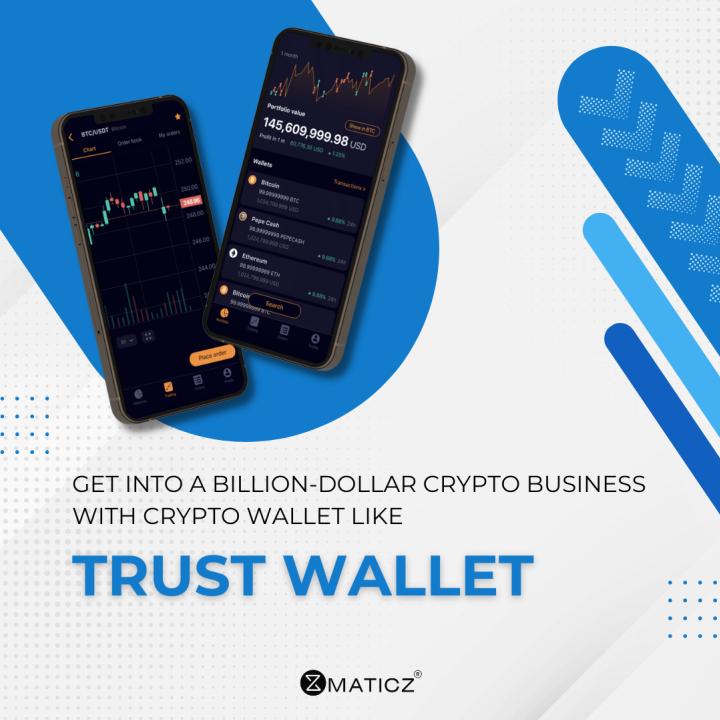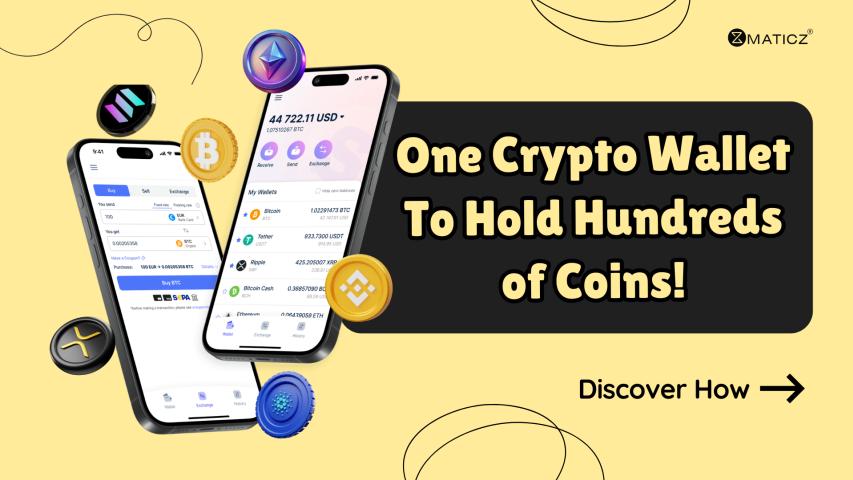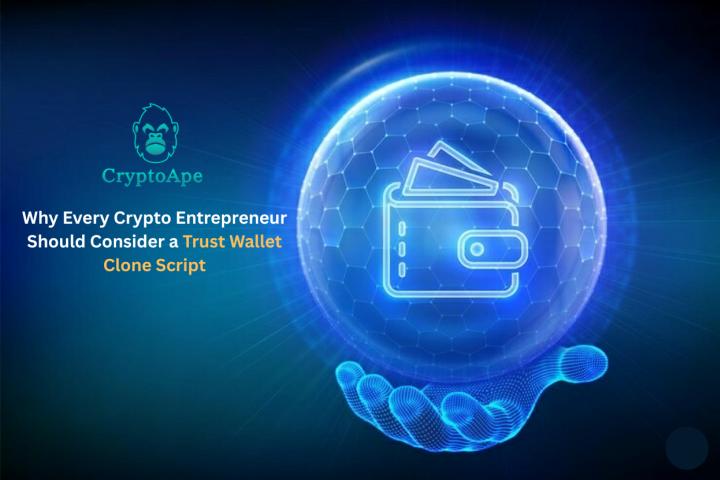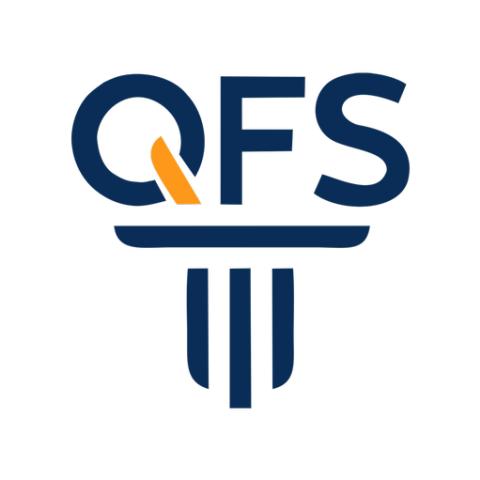In the fast-paced world of cryptocurrency, having a reliable and secure wallet is crucial. Trust Wallet has become one of the most recognized names in the industry, known for its simplicity, security, and multi-currency support. If you're considering developing a crypto wallet like Trust Wallet, here's a guide to creating a top-notch solution that users will trust.
1. Understand the Core Features
To build a wallet that rivals Trust Wallet, you need to integrate the essential features users expect from a top-tier wallet:
Multi-Currency Support: Users prefer wallets that can hold multiple cryptocurrencies, not just Bitcoin or Ethereum. Make sure your wallet supports a variety of coins and tokens.
Security First: End-to-end encryption, multi-factor authentication, and private key control are must-haves. Trust Wallet’s strength lies in its security, so focus on providing a safe experience for users.
User-Friendly Interface: Simplicity is key. The wallet should be easy to navigate for both beginners and experienced users. A clean, intuitive UI ensures users can send, receive, and store their assets with minimal effort.
Decentralized Storage: Just like Trust Wallet, your wallet should allow users to store their private keys locally on their devices rather than on a central server, which enhances security.
Backup and Recovery: Offer easy backup options with recovery phrases to ensure users can regain access to their assets in case of device loss or failure.
2. Leverage Blockchain Technology
A crypto wallet relies on the underlying blockchain network. Here’s what you need to consider:
Support for Multiple Blockchains: Trust Wallet supports multiple blockchain networks such as Ethereum, Binance Smart Chain, and Bitcoin. You’ll want to integrate with various blockchains to increase flexibility and attract more users.
Introducing Solflare-like Wallet for Solana-Based Assets
If you're looking to build a wallet tailored to the Solana blockchain, consider Solflare as a model. This wallet is designed specifically for Solana-based assets and offers high-speed transactions at a lower cost, thanks to Solana's ultra-fast network.
Key features of a Solflare-like wallet:
Solana Token Support: Supports all Solana tokens (SPL tokens), making it perfect for projects built on the Solana ecosystem.
Staking and Governance: Solflare allows users to stake Solana (SOL) directly from their wallet, enabling passive earning and participation in governance decisions.
NFT Support: With Solana gaining traction in the NFT space, the wallet must support Solana-based NFTs, ensuring users can store, manage, and trade their digital collectibles with ease.
High-Performance Transactions: Solana is known for its fast transaction speeds and low fees. A Solflare-like wallet capitalizes on these benefits, making it ideal for users who need efficiency.
Incorporating a Solflare-like wallet into your offering will attract Solana enthusiasts who appreciate the network's scalability and speed.
3. Integrate Advanced Features
Go beyond the basics by adding features that will differentiate your wallet from competitors:
Staking Capabilities: Staking is a popular feature that allows users to earn passive income from their crypto holdings. Integrating staking capabilities for supported cryptocurrencies is a huge bonus.
In-Wallet Trading: Offering a decentralized exchange (DEX) within the wallet, similar to Trust Wallet’s integration with PancakeSwap, allows users to trade tokens without leaving the app.
NFT Support: The growing popularity of NFTs means that a top-tier wallet should have the ability to store and manage digital collectibles.
Push Notifications: Keep users updated with real-time transaction alerts and important updates about their wallets or market changes.
4. Focus on Security and Compliance
When creating a wallet, prioritize security protocols and compliance:
Private Key Management: Give users full control over their private keys, with encrypted storage on their devices.
Two-Factor Authentication (2FA): Adding an extra layer of security ensures that only authorized users can access their funds.
Compliance with Regulations: Depending on the regions where your wallet will be available, make sure you comply with legal and financial regulations, especially around KYC (Know Your Customer) and AML (Anti-Money Laundering) laws.
5. Test and Optimize User Experience
Before launching, thoroughly test your wallet to identify bugs and optimize performance:
Beta Testing: Launch a beta version to a small group of users to gather feedback on functionality and design.
Performance Testing: Ensure that the wallet operates smoothly under high transaction volumes and with different blockchain networks.
User Education: Offer easy-to-understand guides and customer support to help users navigate the wallet, especially if they are new to crypto.
6. Choose the Right Development Partner
Building a top-notch crypto wallet requires technical expertise and in-depth blockchain knowledge. Maticz Technologies, a leading solution setter, specializes in crypto wallet development. We can help you create a secure, user-friendly, and scalable wallet that matches the quality and performance of Trust Wallet or Solflare.
In conclusion, developing a wallet like Trust Wallet or Solflare is about more than just replicating features. It’s about creating a secure, user-centric platform that empowers people to manage their digital assets with ease. With the right approach and the help of a trusted development partner, your wallet can stand out in the ever-growing crypto market.
Get a Maticz's Trust Wallet Clone Demo link >> https://maticz.com/trust-wallet-clone-app









